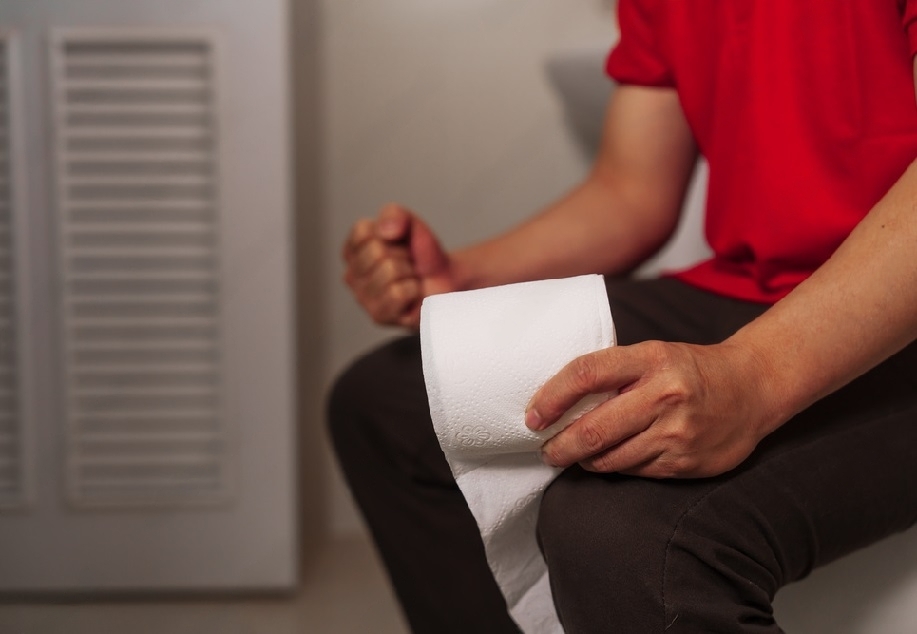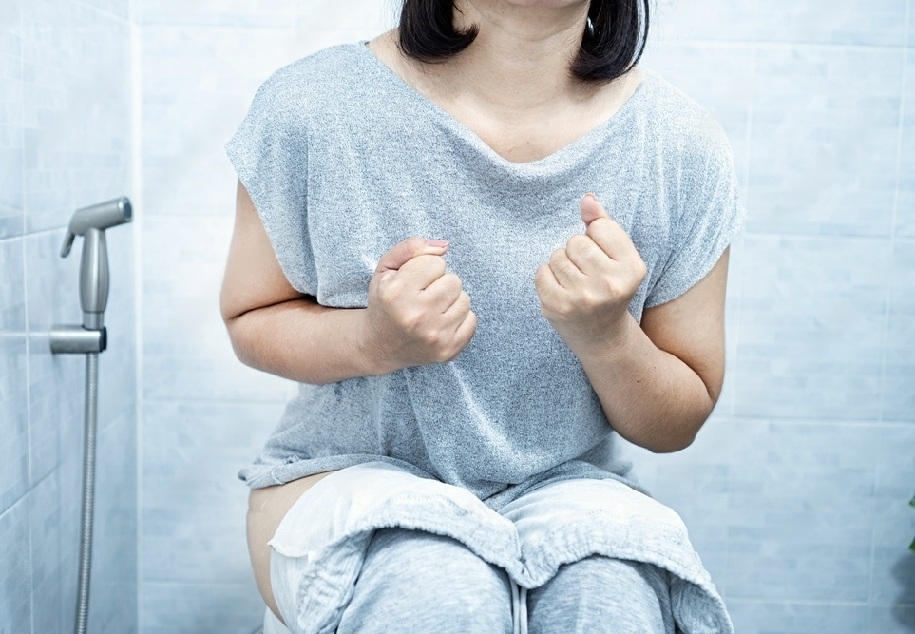Table of Contents
Introduction
Bidets are bathroom fixtures designed to clean the genital and anal areas after using the toilet. They come in various forms, including standalone units, handheld devices, and bidet toilet seats. Bidets use water to cleanse, providing a gentle and hygienic alternative to traditional toilet paper. They offer adjustable water pressure and temperature settings for personalized comfort and often include additional features such as heated seats and air drying. Bidets promote better hygiene, reduce irritation, and can be beneficial for individuals with sensitive skin or conditions like hemorrhoids or Irritable Bowel Syndrome (IBS).
Digestive issues are common health concerns that affect millions of people worldwide. Among them, Irritable Bowel Syndrome (IBS) stands out as one of the most prevalent gastrointestinal disorders. IBS is characterized by a range of uncomfortable symptoms, including abdominal pain, bloating, gas, diarrhea, and constipation. These symptoms can vary in severity and often occur in episodes, known as flare-ups.
What makes IBS particularly challenging is its unpredictable nature. Triggers for symptoms can vary widely from person to person and may include certain foods, stress, hormonal changes, or other factors. Managing IBS requires careful attention to diet, lifestyle, and stress management techniques.
In addition to IBS, many individuals experience other digestive issues such as hemorrhoids, constipation, and diarrhea. These conditions can cause discomfort, embarrassment, and disruption to daily life. Finding effective strategies to alleviate symptoms and improve digestive health is a priority for those affected by these conditions.
In this guide, we’ll explore how bidets, a bathroom fixture designed for personal hygiene, can offer relief and support for individuals dealing with IBS and other digestive issues. By understanding the benefits of bidets and their potential impact on digestive health, individuals can make informed decisions about incorporating this technology into their daily routine.
How bidets can alleviate symptoms of IBS and other digestive issues
Exploring how bidets can alleviate symptoms of IBS and other digestive issues opens up a fascinating avenue for improving personal hygiene and comfort. Bidets, with their gentle cleansing action and hygienic design, offer several benefits that can contribute to alleviating symptoms and promoting overall digestive health.
- Reduction of Irritation and Discomfort: Bidets provide a gentle alternative to abrasive toilet paper, which can exacerbate irritation and soreness, particularly for individuals with sensitive skin or conditions like hemorrhoids. The soothing spray of water helps cleanse the genital and anal areas without causing friction or damage, reducing discomfort during and after bowel movements.
- Gentle Cleansing Without Abrasive Wiping: Traditional wiping with toilet paper can be harsh on the skin, leading to irritation and inflammation, especially for those with existing digestive issues. Bidets eliminate the need for wiping altogether, offering a gentle and hygienic cleaning method that minimizes the risk of skin damage and discomfort.
- Promotion of Proper Hygiene and Cleanliness: Proper hygiene is crucial for managing digestive issues and preventing infections. Bidets ensure thorough cleansing, removing bacteria and residue more effectively than toilet paper alone. This helps reduce the risk of bacterial buildup and maintains a clean and healthy environment, supporting overall digestive health.
- Alleviation of Symptoms: Individuals with IBS and other digestive problems often experience symptoms such as itching, inflammation, and soreness, particularly during flare-ups. Bidets can provide relief by gently cleansing the affected areas and reducing irritation, making bowel movements more comfortable and less distressing.
- Improved Comfort During Bowel Movements: The discomfort associated with digestive issues can make bowel movements unpleasant and challenging. Bidets offer a more comfortable and hygienic experience, providing soothing relief and promoting relaxation during this essential bodily function.
By incorporating bidets into their bathroom routine, individuals can experience significant benefits in managing their digestive health. Bidets offer a simple yet effective solution for alleviating symptoms, promoting proper hygiene, and improving overall comfort and well-being. As more people recognize the advantages of bidet technology, it has the potential to become an essential tool in supporting digestive health and enhancing the quality of life for individuals with IBS and other digestive issues.

Understanding IBS and Digestive Issues
What is IBS?
Irritable Bowel Syndrome, commonly abbreviated as IBS, is a gastrointestinal disorder that affects the large intestine, also known as the colon. It’s a chronic condition characterized by a group of symptoms that can vary from person to person and may include:
- Abdominal pain or discomfort: This pain can range from mild to severe and may be experienced in different parts of the abdomen.
- Bloating: Many people with IBS experience abdominal bloating, which is a feeling of fullness or tightness in the abdomen due to gas buildup.
- Changes in bowel habits: Individuals with IBS may experience diarrhea, constipation, or both. These changes in bowel habits may occur over time or in alternating patterns.
- Gas and bloating: Excess gas and bloating are common symptoms of IBS, leading to discomfort and a feeling of fullness in the abdomen.
- Mucus in the stool: Some people with IBS may notice mucus in their stool, which can be a result of inflammation in the intestines.
IBS is considered a functional gastrointestinal disorder, meaning that it affects the function of the digestive system rather than causing structural damage or abnormalities. The exact cause of IBS is not fully understood, but it is believed to involve a combination of factors, including abnormal muscle contractions in the intestines, heightened sensitivity to pain and discomfort, and changes in the gut microbiota.
IBS can have a significant impact on quality of life, causing discomfort, distress, and disruption to daily activities. While there is no cure for IBS, treatment options are available to help manage symptoms and improve quality of life. These may include dietary modifications, stress management techniques, medications, and lifestyle changes.
It’s essential for individuals experiencing symptoms of IBS to consult with a healthcare professional for an accurate diagnosis and personalized treatment plan. With proper management and support, many people with IBS can effectively manage their symptoms and lead fulfilling lives.
Common Digestive Issues
Digestive issues encompass a wide range of conditions that affect the gastrointestinal system, from the mouth to the anus. These issues can vary in severity and may include:
- Hemorrhoids: Hemorrhoids are swollen and inflamed veins in the rectum and anus that can cause pain, itching, and bleeding, especially during bowel movements. They can be internal or external and are often caused by straining during bowel movements, chronic constipation, or prolonged sitting.
- Constipation: Constipation is a common digestive problem characterized by infrequent bowel movements or difficulty passing stool. It can be caused by a variety of factors, including inadequate fiber intake, dehydration, lack of physical activity, and certain medications. Constipation can lead to discomfort, bloating, and abdominal pain.
- Diarrhea: Diarrhea is characterized by loose, watery stools and increased frequency of bowel movements. It can be caused by infections, food intolerances, medications, or underlying medical conditions. Diarrhea can lead to dehydration and electrolyte imbalances if not properly managed.
- Gastroesophageal Reflux Disease (GERD): GERD occurs when stomach acid flows back into the esophagus, causing symptoms such as heartburn, chest pain, and difficulty swallowing. It can be triggered by certain foods, obesity, pregnancy, and hiatal hernias. Chronic GERD can lead to complications such as esophageal inflammation and ulcers.
- Inflammatory Bowel Disease (IBD): IBD is a group of inflammatory conditions that affect the digestive tract, including Crohn’s disease and ulcerative colitis. These conditions cause inflammation and damage to the lining of the intestines, leading to symptoms such as abdominal pain, diarrhea, rectal bleeding, and weight loss.
- Gallstones: Gallstones are hardened deposits that form in the gallbladder, a small organ located beneath the liver. They can block the flow of bile and cause symptoms such as abdominal pain, nausea, vomiting, and jaundice. Gallstones may require medical intervention, such as surgery, to remove them.
- Diverticulitis: Diverticulitis occurs when small pouches called diverticula in the colon become inflamed or infected. It can cause symptoms such as abdominal pain, fever, nausea, and changes in bowel habits. Diverticulitis may require treatment with antibiotics and dietary modifications.

Bidets: What They Are and How They Work
Types of Bidets
Bidets come in different forms, including traditional standalone units, handheld devices, and bidet toilet seats. Each type offers unique features and benefits, but they all serve the same purpose: to provide gentle cleansing after using the toilet.
- Traditional Standalone Units: These are standalone fixtures separate from the toilet. They typically consist of a basin or bowl with a faucet or nozzle for spraying water. Traditional standalone bidets are common in many European and Asian countries and are often found next to the toilet in bathrooms. Users straddle the bidet and adjust the water temperature and pressure to their preference for cleansing.
- Handheld Devices: Handheld bidet sprayers, also known as bidet showers or shattaf, are attached to the toilet’s water supply line and feature a flexible hose with a nozzle or spray head. Users can hold the sprayer in their hand and direct the water to the desired area for cleansing. Handheld bidet sprayers offer flexibility and convenience, allowing users to control the angle and intensity of the water spray.
- Bidet Toilet Seats: Bidet toilet seats are installed on existing toilet bowls and replace the regular toilet seat. They feature built-in bidet functionality, including a nozzle or spray arm that extends from the rear or underside of the seat. Bidet toilet seats may offer various features such as adjustable water temperature, pressure, and spray patterns, as well as additional functions like heated seats, air drying, and deodorizers. Some models even come with remote controls or touchscreen panels for easy customization.
While each type of bidet offers its own set of features and benefits, they all share the common goal of providing gentle and effective cleansing after using the toilet. Bidets promote better hygiene, reduce the use of toilet paper, and offer added comfort and convenience in the bathroom. Whether you prefer a traditional standalone unit, a handheld sprayer, or a high-tech bidet toilet seat, there’s a bidet option to suit your needs and preferences.
Functionality and Features
Bidets work by spraying water to cleanse the genital and anal areas. They often feature adjustable water pressure and temperature settings for personalized comfort. Some advanced models even include additional features like heated seats, air drying, and remote controls.
Advantages Over Traditional Toilet Paper
Unlike toilet paper, which can be abrasive and irritating to sensitive skin, bidets offer a gentle and thorough cleaning experience. They help remove residue without causing friction or damage, promoting better hygiene and comfort.
Bidets offer several advantages over traditional toilet paper for personal hygiene and comfort:
- Gentle Cleansing: Bidets use water to cleanse the genital and anal areas, providing a gentle and thorough cleaning experience. This is especially beneficial for individuals with sensitive skin or conditions like hemorrhoids, as it reduces the risk of irritation and discomfort compared to abrasive wiping with toilet paper.
- Hygienic: Bidets promote better hygiene by removing bacteria and residue more effectively than toilet paper alone. Water helps flush away bacteria and other contaminants, reducing the risk of infections and maintaining a clean and healthy environment.
- Reduced Irritation and Inflammation: Wiping with toilet paper can cause friction and irritation, particularly for individuals with sensitive skin or existing skin conditions. Bidets eliminate the need for wiping, minimizing the risk of irritation, inflammation, and soreness.
- Cost-Effective: While the initial investment in a bidet may seem high, it can actually save money in the long run by reducing the need for expensive skincare products and medical treatments related to skin irritation and digestive issues. Bidets offer a cost-effective solution for promoting hygiene and comfort over time.
- Environmental Sustainability: Bidets help reduce the use of toilet paper, which can have a significant environmental impact due to deforestation, water consumption, and waste generation. By using water instead of paper for cleansing, bidets contribute to sustainability efforts and reduce the carbon footprint associated with personal hygiene.
- Improved Comfort: Bidets offer a more comfortable and relaxing experience compared to traditional toilet paper. The gentle spray of water provides soothing relief, especially for individuals with digestive issues or discomfort during bowel movements.
- Customizable Settings: Many bidet models come with adjustable water pressure, temperature, and spray patterns, allowing users to customize their cleansing experience to their preferences. This level of customization ensures optimal comfort and cleanliness for each individual.
Overall, bidets offer a hygienic, comfortable, and environmentally friendly alternative to traditional toilet paper for personal hygiene. By incorporating a bidet into their bathroom routine, individuals can experience improved cleanliness, reduced irritation, and enhanced comfort during and after toilet use.
How Bidets Can Benefit Individuals with IBS and Digestive Issues
Reduced Irritation and Discomfort
For individuals with sensitive skin or conditions like hemorrhoids, the gentle spray of water from a bidet can provide relief from irritation and soreness. It’s a soothing alternative to harsh wiping motions that can exacerbate discomfort.
Gentle Cleansing Without Abrasive Wiping
Bidets eliminate the need for abrasive toilet paper, which can aggravate existing skin conditions and cause further irritation. By using water to cleanse, bidets offer a gentle and hygienic solution that promotes skin health and comfort.
Promotion of Proper Hygiene and Cleanliness
Proper hygiene is essential for managing digestive issues and preventing infections. Bidets help ensure thorough cleansing, reducing the risk of bacterial buildup and maintaining a clean and healthy environment.
Alleviation of Symptoms
Many individuals with IBS and other digestive issues experience symptoms such as itching, inflammation, and soreness. Bidets can help alleviate these symptoms by providing gentle cleansing and reducing irritation during bowel movements.
Improved Comfort During Bowel Movements
The discomfort associated with digestive issues can make bowel movements unpleasant and challenging. Bidets offer a more comfortable and hygienic experience, making it easier for individuals to maintain their bathroom routine without added stress or discomfort.

Research and Studies Supporting Bidet Use for Digestive Health
Scientific Evidence
Several studies have examined the efficacy of bidets for promoting hygiene and alleviating symptoms of digestive issues. Research has shown that bidet use can reduce the risk of infections and improve overall comfort and well-being.
Testimonials and Anecdotal Evidence
Many individuals with IBS and other digestive problems have reported significant relief and improvement in symptoms after incorporating bidets into their hygiene routine. Their testimonials provide valuable insight into the real-world benefits of bidet use for digestive health.
Comparison with Traditional Toilet Paper
Compared to traditional toilet paper, bidets offer superior cleansing and comfort, especially for individuals with sensitive skin or existing digestive issues. They provide a more thorough and hygienic cleaning experience without the potential for irritation or damage.
Practical Considerations and Implementation
Cost-Effectiveness
While the initial investment in a bidet may seem high, it can actually save money in the long run by reducing the need for expensive skincare products and medical treatments related to digestive issues. Bidets are a cost-effective solution for promoting hygiene and comfort.
Installation and Maintenance
Installing a bidet is relatively simple and can be done without professional assistance in many cases. Maintenance is minimal, usually requiring only periodic cleaning and inspection to ensure proper functioning. Bidets are designed to be durable and long-lasting, providing years of reliable use.
Addressing Concerns and Misconceptions
Some people may have reservations or misconceptions about bidets, such as concerns about cleanliness or discomfort. However, modern bidet systems are hygienic, user-friendly, and designed with comfort in mind. Education and awareness can help dispel myths and encourage more widespread adoption of bidet technology.
Accessibility Considerations
For individuals with disabilities or limited mobility, bidets offer added convenience and independence in personal hygiene. Accessible bidet models with adjustable features and easy-to-use controls make it possible for everyone to enjoy the benefits of bidet technology.

Conclusion
In conclusion, bidets represent a simple yet effective solution for managing digestive issues and promoting overall hygiene and comfort. Whether you’re dealing with IBS, hemorrhoids, or other gastrointestinal problems, incorporating a bidet into your bathroom routine can make a significant difference in your quality of life. With their gentle cleansing action, hygienic design, and user-friendly features, bidets offer a practical and sustainable solution for improving digestive health and well-being.
